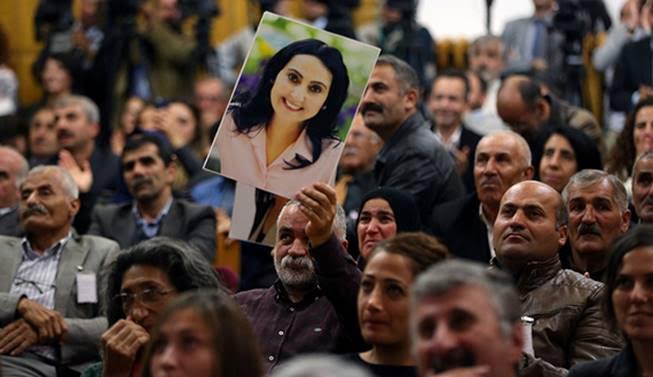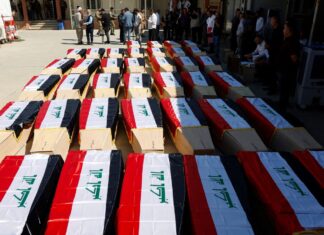By Amberin Zaman
ANKARA (Al-Monitor) — Turkey’s beleaguered pro-Kurdish block was dealt a further blow on February 21 when the parliament stripped its imprisoned co-leader of her seat. An appeals court upheld Figen Yuksedag’s conviction of spreading terrorist propaganda.
Yuksedag and fellow co-leader of the Peoples’ Democratic Party (HDP) Selahattin Demirtas remain in jail together with at least nine other HDP deputies — their numbers keep fluctuating — on a wide array of often sketchily constructed terror charges. Yuksekdag lost her seat because she attended the funeral of a left-wing militant deemed to be a terrorist.
Idris Baluken, another HDP member of parliament who was intimately involved in now scrapped peace talks between the government and imprisoned Kurdistan Workers Party (PKK) leader Abdullah Ocalan, was rearrested after an appeals court’s objection to his release three weeks ago was sustained. Another court in the eastern province of Dogubayazit, meanwhile, slapped Demirtas with a five-month jail sentence for “insulting the Turkish people, the Turkish state and its institutions.”
The all-out legal assault on the HDP is widely seen as an attempt by the ruling Justice and Development Party (AKP) to win over nationalist voters in the run-up to the April 16 referendum on boosting the powers of the presidency. The HDP is fiercely opposed to the measures that would essentially result in one-man rule.
With his boyish charm, biting wit and oratory flair, Demirtas helped carry the HDP into the parliament for the first time in June 2015 with the campaign slogan, “We will not make you an executive president.” The platform made him the bête noire of Recep Tayyip Erdogan, the Turkish president bent on formalizing the sweeping powers he already wields.










